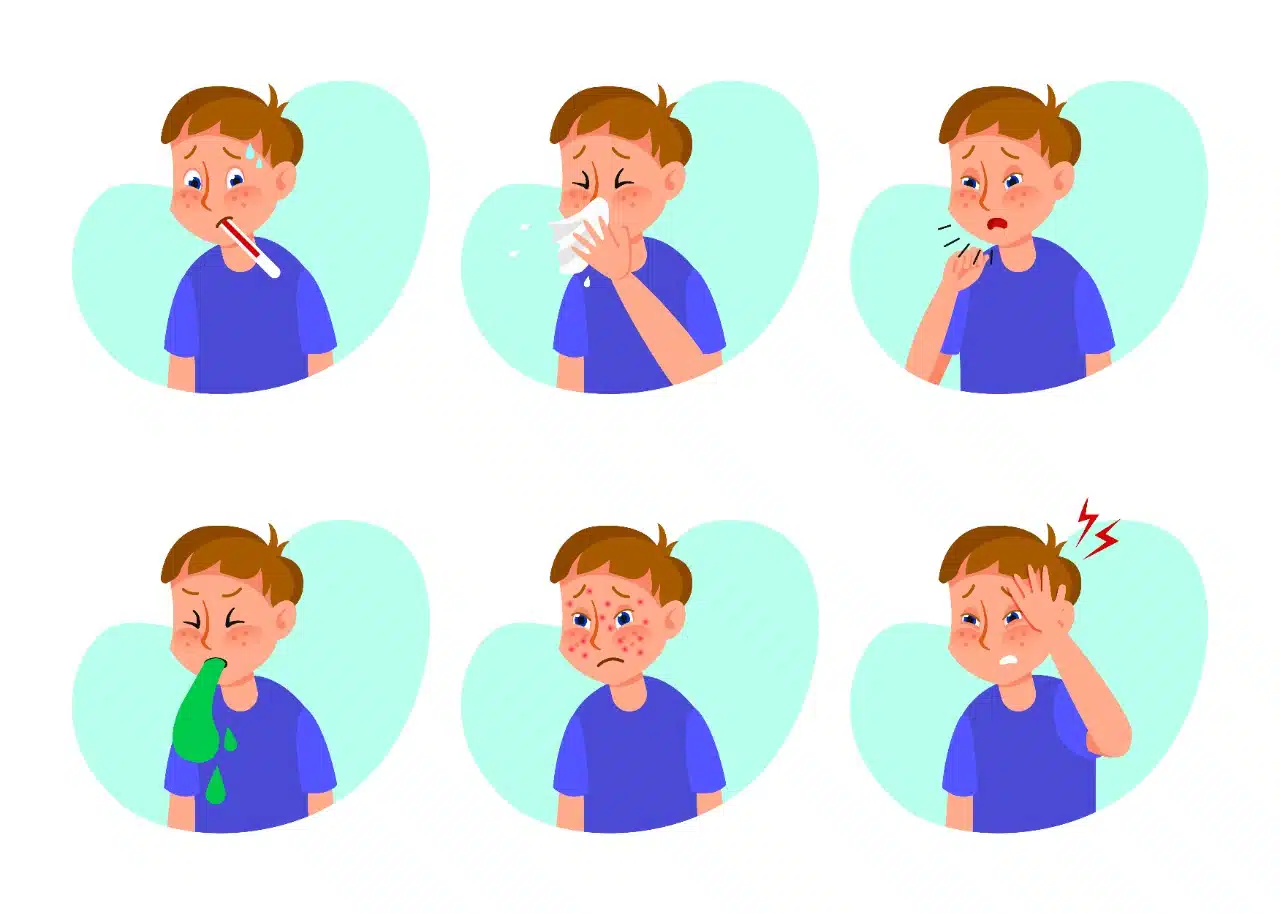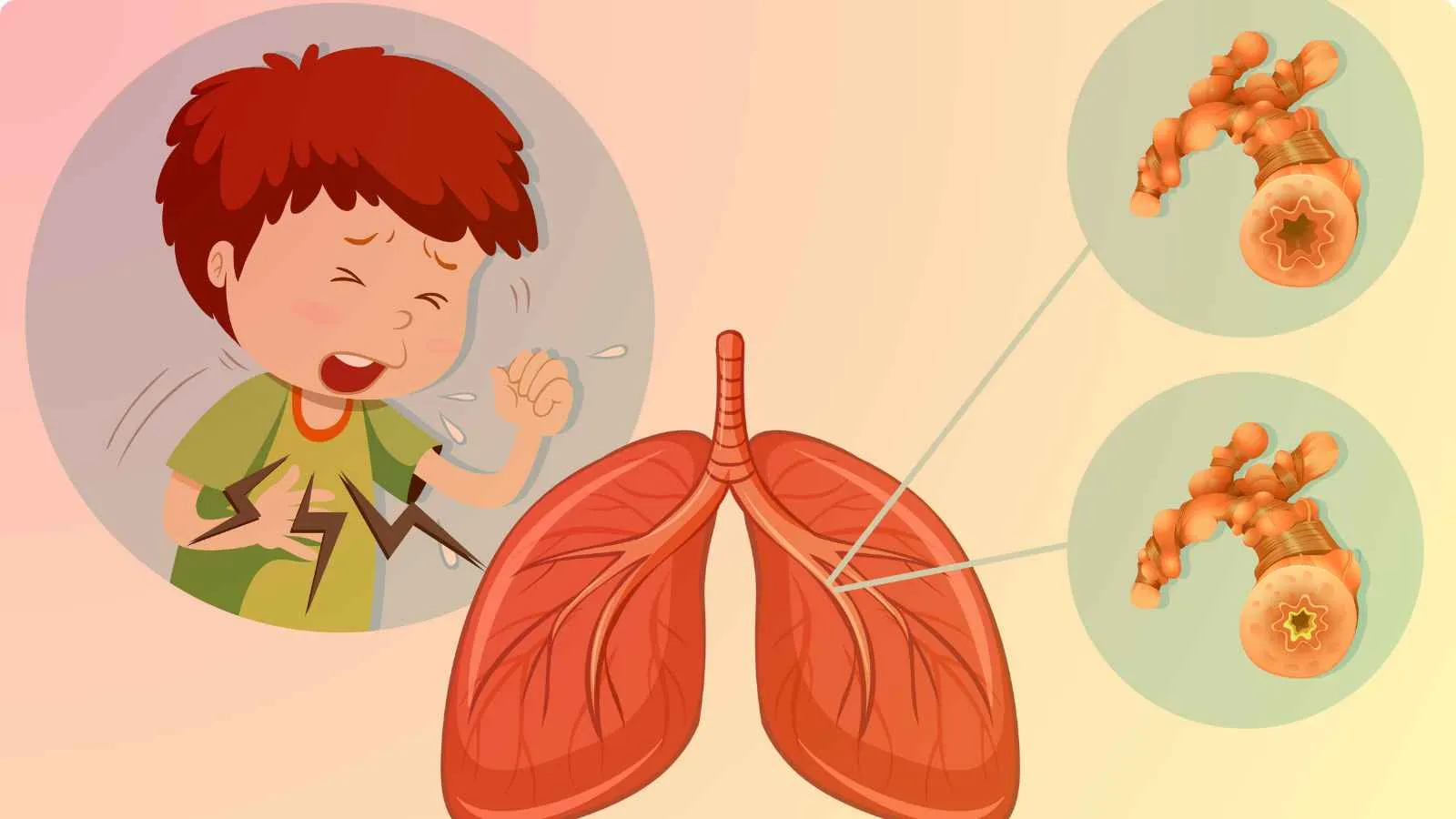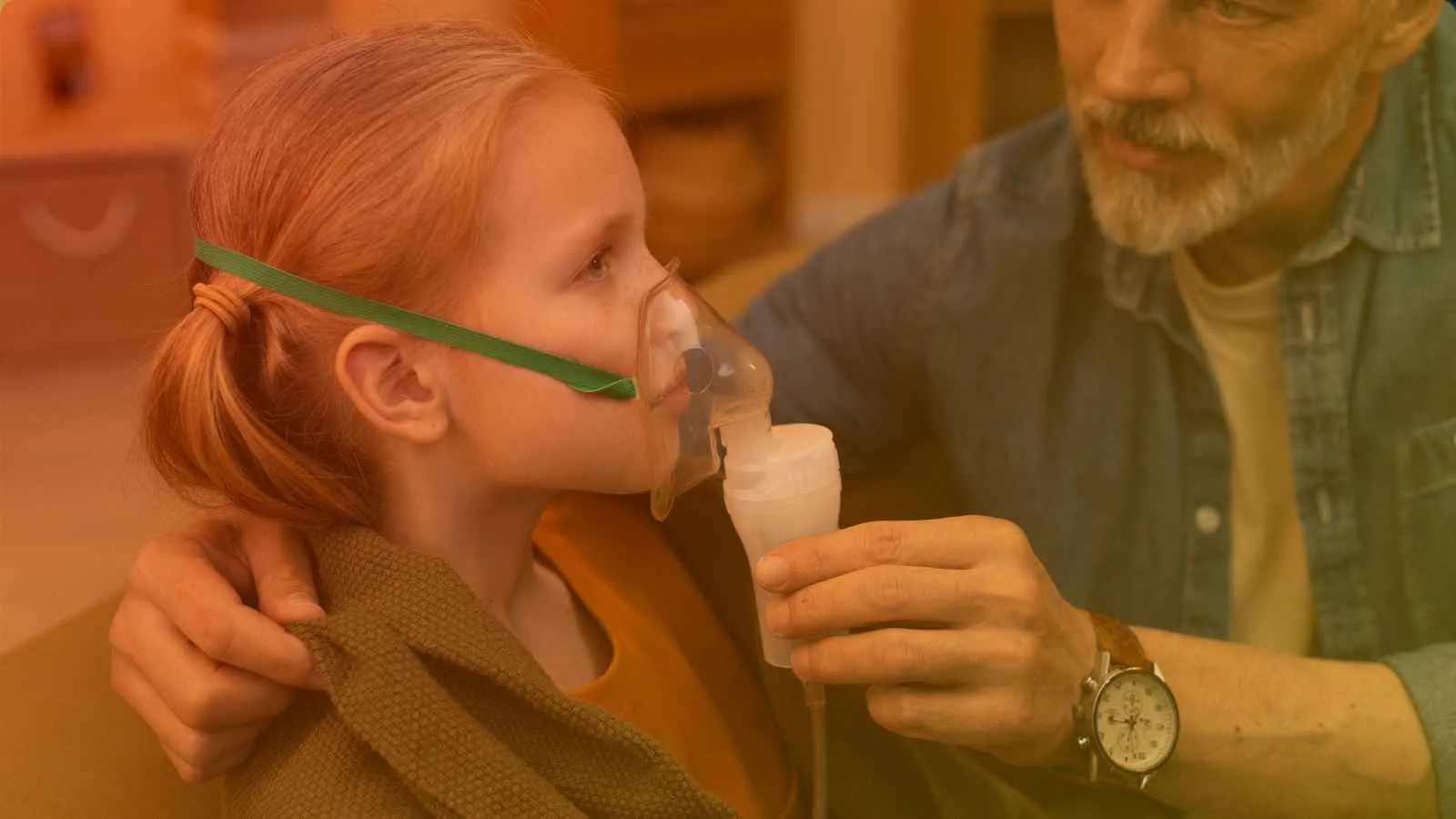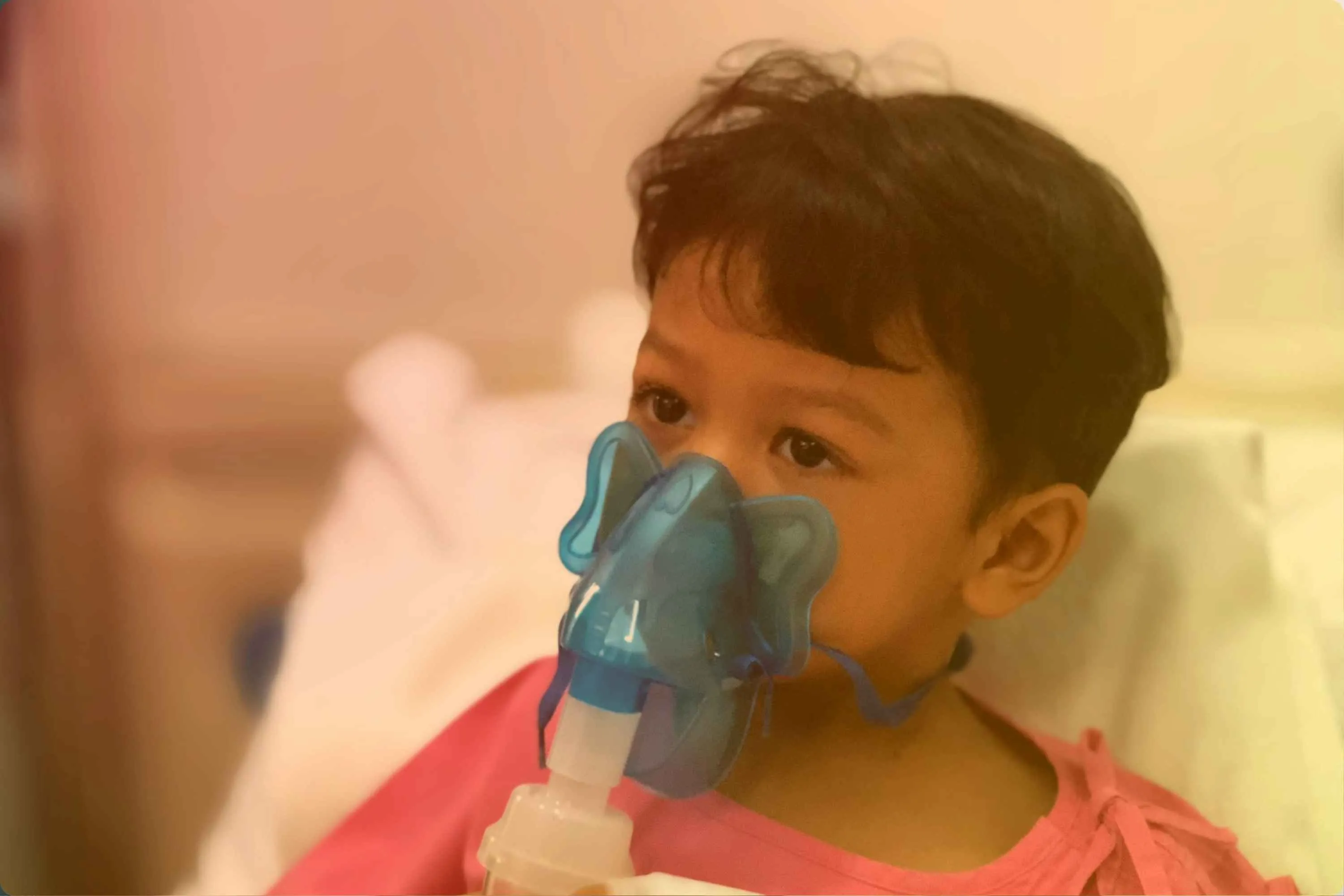Childhood Asthma
Your airways may narrow, swell, and create additional mucus such a condition known as asthma. Due to this, there would be difficulty in inhaling and exhaling and wheezing.
If subjected towards certain triggers, such as breathing in pollen or contracting a cold or another respiratory illness, the lungs and airways quickly swell up with inflammation in children with asthma. Children with asthma may have problems sleeping or playing. Asthma in some kids can result in asthma attacks that could be dangerous to one’s life.
Primarily in low- and moderate-income nations, asthma is frequently underdiagnosed
and undertreated. People with untreated asthma may experience sleep disturbances,
daytime fatigue, and difficulty concentrating. Children with asthma may miss school,
and their families can miss work too, which has an economic impact on both the
family and the larger community. Individuals suffering from asthma may require
emergency medical attention if their symptoms are severe, and they may also need to
be admitted to the hospital for monitoring and treatment. In its most extreme forms,
asthma can be fatal.
Although childhood asthma is not a separate illness from
adult asthma, children have special difficulties. Unfortunately, there is no known
cure for childhood asthma, and symptoms can last well into adulthood. But with the
correct care, you and your kid can manage the symptoms and protect the developing
lungs.
Symptoms

There are various symptoms and signs of childhood asthma; they are
- Wheezing or Whistling noise is made while exhaling
- There would be stiffness or congestion in the chest
- Difficulty in breathing
- Continuous Coughing, which gets worse when your kid has a viral infection, is bought on by cold air or by exercise or while they are sleeping
Additionally, infant asthma may result in
- Inability to sleep owing to coughing, wheezing, or shortness of breath.
- After a respiratory illness, it results in a slow recovery or bronchitis
- Wheezing or coughing fits that worsen with flu or a cold.
- Difficulty breathing that interferes with play or activity.
- Fatigue, which may result from inadequate sleep.
Causes
Combinations of intricate and still poorly understood genetic and environmental interactions lead to asthma. These affect both how severe it is and how well it responds to treatment. It is thought that shifting epigenetics—heritable variables other than those connected to the DNA sequence—and a changing environment are to blame for the current rise in asthma incidence. The likelihood that asthma will develop well before the age of 12 is higher than the likelihood that it will develop beyond that age due to environmental factors.
Some of the causes are:
- Genetical or Family background
- The young onset of several forms of airway infections
- Predisposition to get allergies inborn
- Exposure to outside elements like tobacco/cigarette smoking or other poor air quality
- Asthma prevalence rises with urbanization, most likely as a consequence of many lifestyle variables
- Asthma seems to be more likely to impact obese or overweight kids and adults
- When exposed to particular triggers, both lungs and airways expand and secrete mucus as a result of the immune system’s increased sensitivity. The delayed response to a trigger makes it more challenging to pinpoint the trigger. Depending on the child, triggers may differ and include
- Viral infections, such as the common cold or flu
- Airborne contaminants (e.g., cigarette smoke)
- Allergies to mold, pollen, pet dander, or dust mites
- Physical activity or exercise
- Changes in weather, especially cold air
The Homeopathic area of Invention
The bronchial mucosa-related biological conflict is a territorial fear conflict. When children are chastised, mistreated, or shouted at, when they are afraid of someone or something, when they have nightmares, or when they are terrified, they experience conflict.
The approach of treatment in a homoeopathic way
- The clinical signs of an asthmatic illness, such as breathing difficulties, coughing, fever, etc., can be successfully and more safely managed with homoeopathic medication.
- The allergic condition, which is one of the factors that cause asthma to develop, can also be cured by homeopathy asthma treatment.
- The hypersensitivity of an asthmatic’s immune system can be changed by homoeopathic treatment. A person won’t react negatively to allergens the way he did before after the immune system hypersensitivity improves during treatment. Only a thorough constitutional homoeopathic treatment for asthma may do this.
- Asthma can be treated with homoeopathy in a very safe manner and without any negative pharmacological side effects.
Medicines in Homeopathic Field
Homoeopathic medicine aims to treat and find a cure for asthma with a little dose that may produce symptoms resembling those of asthma. This is supposed to start the body’s defence mechanisms.


Homeopathic Medicines
Homeopathic Treatment for Childhood Asthma
Homeopathic medicine seeks to stimulate the body's own defence mechanisms by using small doses of substances that, in a healthy person, would produce symptoms similar to those of the disease. In asthma, the carefully selected homeopathic remedy is aimed at treating the underlying cause and relieving symptoms, tailored to the individual's specific presentation.
Arsenicum Iodatum (Ars Iod)
Useful in asthma that develops from allergic reactions to dust, pollen, or animal dander. There is a watery nasal discharge, frequently with sneezing and running nose, especially before an asthma episode. Watery discharge from the nose and eyes often precedes or accompanies symptoms.
Sambucus Nigra
Especially indicated for asthma in children. Characterized by sudden suffocative attacks at night which awaken the child with a sense of suffocation, causing restlessness, crying, and fear. Nasal blockage with difficulty breathing may also be present.
Antimonium Tartaricum
Indicated in asthma with much rattling of mucus in the chest but little expectoration. The chest sounds full of mucus, and the patient has difficulty bringing it up, leading to shortness of breath and feeling of suffocation. The child may become exhausted from coughing.
Calcarea Carbonica
Suited for children who sweat easily on the head or neck with minimal effort and tend to catch colds easily. Asthma symptoms may appear after respiratory infections or in children who have a general tendency toward allergies.
Blatta Orientalis
Often prescribed for asthmatic attacks that are worse in damp weather or due to exposure to dust. Wheezing and a sensation of chest congestion are common. The medicine may help reduce the frequency and intensity of attacks and relieve acute symptoms when they occur.



